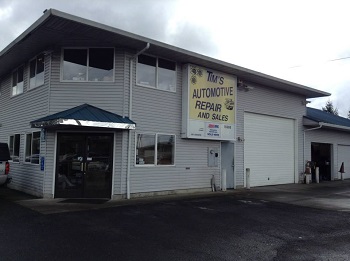Posted on 11/29/2024

How Do I Know If My Car Needs Brakes? Tim’s Automotive Brings Expertise to Clackamas Drivers In the bustling city of Clackamas, OR, where daily commutes meet the serene beauty of the Pacific Northwest, reliable brakes are an absolute necessity. Whether you’re navigating local streets or cruising along I-205, your braking system is your vehicle’s most critical safety feature. At Tim’s Automotive Repair and Sales, we specialize in expert brake maintenance and repair services, ensuring that your car stops smoothly and safely, no matter where the road takes you. This comprehensive guide will help you identify the warning signs that your brakes need attention, explain why brake wear happens, and show how Tim’s Automotive can keep your vehicle safe and dependable. Why Brake Maintenance Is Vital in Clackamas Driving conditions in Clackamas can vary widely. From the urban traffic of SE 135th Avenue to the open roads of the surrounding countrysid ... read more
Posted on 11/21/2024

Finding the Right Auto Repair Shop Near You: Building Trust and Getting Quality Service When it comes to finding an auto repair shop or mechanic “near me,” it’s about more than just location. Sure, proximity matters, but if you’re looking to save money, maintain your car’s performance, and ensure safety, you need to build a relationship with a trusted auto repair shop or technician. Simply picking the closest mechanic isn’t enough if you want the job done right and at a fair price. Establishing a strong connection with an experienced automotive professional can make all the difference in your car ownership experience, especially for the long haul. In this guide, we’ll discuss what to look for when searching for a “mechanic near me,” how to identify a quality shop, and why trusting your technician is crucial. Why Finding the Right Technician is Key In the automotive industry, professionals are often called “technicians,&rdq ... read more
Posted on 11/18/2024

Is Having a Maintenance Schedule Important for My Car? Understanding the Dealership vs. Aftermarket Debate When it comes to maintaining your vehicle, the seemingly simple task of following a service schedule can feel confusing. Should you rely on the factory-recommended maintenance intervals, follow your dealership’s advice, or listen to your trusted local mechanic or aftermarket specialist? Each has its own recommendations, but at the end of the day, proper maintenance is essential if you want your car to last and perform optimally. Let’s break down the details and discuss how a well-thought-out maintenance schedule can keep your car on the road for hundreds of thousands of miles. Why Regular Maintenance is Essential First things first: why does your car need regular maintenance? Many parts in a vehicle experience wear and tear simply from everyday use. Fluids degrade, filters get clogged, and moving parts wear down. Following a consistent maintenance schedule helps add ... read more
Posted on 11/14/2024

Why Shocks and Struts Are Essential for Your Vehicle and When to Replace Them Shocks and struts are often taken for granted, but they play a critical role in the comfort, handling, and safety of your vehicle. Understanding their function and importance, along with knowing the right time for replacement, is crucial for every car owner. Here, we’ll cover what shocks and struts do, why they’re necessary, and why it’s often recommended to replace them around 75,000 miles as a part of preventive maintenance. What Are Shocks and Struts? Shocks and struts are key components of your vehicle’s suspension system, working to ensure stability, comfort, and control on the road. 1. Shocks (Shock Absorbers): Shock absorbers are hydraulic devices designed to control the movement of your vehicle’s springs, especially when driving on uneven or rough terrain. The springs absorb most of the initial impact, and shocks help manage this energy by controlling t ... read more
Posted on 11/11/2024

Check Engine Light Diagnostics Near Me: The Real Story Behind Check Engine Light Diagnostics: Why It’s More Than Just Reading a Code You’re driving along, and suddenly, the dreaded check engine light pops up on your dashboard. It's that sinking feeling we all know, but what does it really mean? Some places offer a quick code reading for free, but what they’re giving you is only a surface-level answer. The code alone is like a single sentence in a novel—one small piece of a much larger, complex story about your car’s health. In modern vehicles, the check engine light is a signal that something is off within a complex network of systems powered by 20, 30, or even 40 onboard computers. Each of these computers, or control modules, is designed to handle specific parts of your vehicle’s performance, safety, or efficiency. These modules are linked together through tens of thousands of wires and sensors, all of which communicate in real t ... read more